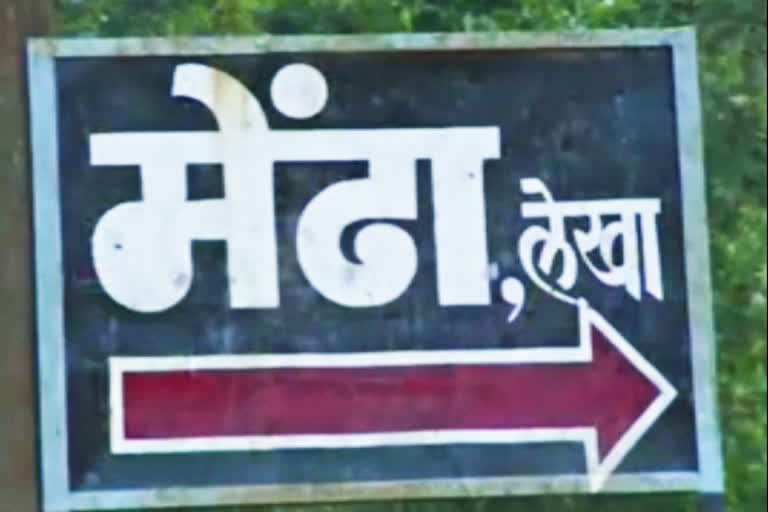Gadchiroli (Maharashtra): "Dillit amchech sarkar…amchya gavat amhich sarkar" (Our government in Mumbai, Delhi…We are the government in our village) is the famous slogan of Mendha (Lekha), a tiny village situated in a deep forest area in Dhanora tehsil. The village holds its uniqueness as all decisions here are taken by Gramsabha.
Moreover, Government has given the ownership of 1800 hectare forest land to Gramsabha in the village Mendha (Lekha) which is situated 35 km from district headquarter of Gadchiroli and holds a population of nearly 500 with Gond tribe in dominance and paddy cultivation in demand.
On travelling from Gadchiroli to Dhanora one comes across a quote "Dilli-Mumbait Amche Sarkar, Amchya Gavat Amhich Sarkar" which roughly translates to "In Dehli and Mumbai, we are the government, in our village, we are the rulers".
The villagers religiously follow this motto and in case of any decision concerning the village, they themselves decide for they don't believe in giving this supreme power to outside forces. Two leaders of the village named Devaji Tofa and Mohan Hirabhai Hiralal have been taking care of the administrative affairs.
Also read: Five grenade explosions rock Assam
Indian forest act was implemented by the British government in 1927. The act sought to consolidate and reserve the areas having forest cover or significant wildlife. According to this act, all the forest land was owned by the government, even after India's independence, the law remained the same.
The tribals were not even allowed to enter the forest, let alone bring firewood for making hedges. The village is occupied by Bamboo trees on a large scale whose rights were under the forest department. The forest department sanctioned the contract of cutting down these trees. Soon thereafter a tussle started between the villagers and forest research department, Devaji Tofa, stood for the justice and at last, after fighting a long battle on 25 August, the ownership of 1800 hector forest was handed over to the Mendha (Lekha) villagers and in 2011, they were also given the rights of sale.
The administration of the village laid out the rule that if a family needs, it can sell the fruits and other things of the forest with the permission of Gramsabha. The village prescribed its own code of conduct which incorporated, everybody, should participate in the Gramsabha meeting and women should present their problems without any fear. On all the fronts like education, health, environment, the village has found its way of sustainable development through the efforts of Gramsabha.
The Gramsabha has created a collective grain cell in which every villager deposits two and a half per cent of the grain of total income. This collected grain is supposed to be used in case of scarcity or in marriage ceremonies.



